COS GUEST LECTURER
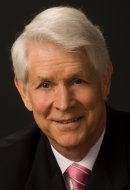
Thomas S. Harbin, Jr, MD, MBA
Thomas S. Harbin, Jr, MD, MBA
Dr. Harbin is an experienced glaucomatologist, app developer and author. He received his BA from Vanderbilt University and MD from Cornell University Medical College in 1970. He served his residency at Johns Hopkins’ Wilmer Institute followed by a glaucoma fellowship at Washington University. He joined Eye Consultants of Atlanta in 1975 and continues to practice there. He entered the Georgia State Executive MBA program in 1989 and received his MBA in 1991. He served on the clinical faculty at Emory for 20 years and currently holds the title of Emeritus Clinical Professor.
He published Waking Up Blind: Lawsuits over Eye Surgery in 2009 to wide acclaim, a book that is used to teach medical ethics in many ophthalmology residency programs. He later published The Business Side of Medicine… What Medical Schools Don’t Teach You and still later, with co-developer Dr. Scott Pastor, an app to aid in eyedrop compliance, EyeDROPS.
Recent lectureships include delivering the keynote address at the Henry Ford Health System’s annual meeting of the Department of Ophthalmology and the Susruta Lecture at the Wilmer Residents Annual Meeting. He has served as President of the Georgia Society of Ophthalmology and Trustee at Large of the American Academy of Ophthalmology. He chaired the board of Piedmont Hospital and Piedmont Healthcare System in Atlanta and joined the Academy’s Senior Ophthalmologist Committee in 2015. He served as board chairman of the Georgia State chapter of The Nature Conservancy from 2013 to 2015.
Dr. Harbin lives in Atlanta with his wife Ellen. They have two children and five grandchildren.
Financial disclosure: I do not have any affiliation (financial or otherwise) with a commercial organization.
CATARACT
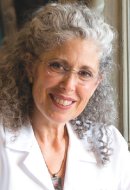
Lisa Brothers Arbisser, MD
Lisa Brothers Arbisser, MD
A Princeton graduate, Dr. Lisa teaches cataract and anterior segment surgery worldwide. She retired from patient care after 30 years of high volume surgery from her Quad Cities, Iowa, and Illinois practice Eye Surgeons Associates (ESA) in February 2014. She continues to lecture, write, and serve as a personal surgical coach.
Dr. Lisa has her MD from University of Texas at Houston Medical School where she also did an NIH research fellowship in neurobiology and retina. She performed her residency at the University of Iowa Hospitals and Clinics. She serves as adjunct associate professor at the University of Utah Moran Eye Center and is former president of the American College of Eye Surgeons.
Dr. Lisa regularly teaches vitrectomy courses for the anterior segment surgeon, authored an American Academy of Ophthalmology (AAO) Focal Points on the subject and specializes in refractive, complex adult and pediatric cataract as well as anterior segment reconstruction. She has performed live satellite interactive surgery at major national and international meetings, given many named talks and contributes to and is in the top 10% of reviewers for the Journal of Cataract and Refractive Surgery.
Dr. Lisa has been for years on the Best Doctors list nationally, was voted to the top 50 opinion leaders in cataract and refractive surgery by the readership of Cataract and Refractive Surgery Today (CRST), and was chosen as one of the 250 leading innovators in the field of premium IOL implant surgery by the editors of Premier Surgeon. She serves on the editorial board of CRST and EyeWorld and pens a quarterly column for each. She serves on the cataract committee for the AAO Online and Education Network and is the cataract editor for Focal Points. She is the secretary and board member of Women in Ophthalmology, on the board of ACES and ABES, has been voted AMA Woman Living Legend of Iowa and is in the Iowa Volunteer Hall of Fame.
She and her husband Amir, a retired pediatric ophthalmologist, cofounded ESA in 1983 and have four children and three grandchildren.
Financial disclosure: I have/had an affiliation (financial or otherwise) with a commercial organization.
- Mynosys
- Smart Vision Labs
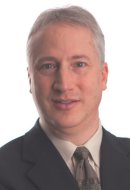
Michael E. Snyder, MD
Michael E. Snyder, MD
Board of Directors, Cincinnati Eye Institute
Chair, Clinical Research Steering Committee
Volunteer Faculty, University of Cincinnati
Dr. Snyder specializes in diseases and surgery of the front of the eye, including small-incision, topical anesthesia cataract surgery. His special interests include traumatic cataract surgery, iris repair, corneal transplantation, and refractive surgery. Dr. Snyder has, with Dr. Robert Osher, pioneered artificial iris prosthesis use in the United States, aiding in the rehabilitation of acquired traumatic iris defects or congenital iris defects such as aniridia and ocular albinism.
He completed both his undergraduate degree in psychology and his medical degree from University of Michigan, followed by his internship in internal medicine and general surgery at Presbyterian/St. Luke’s Medical Center of Denver, Colorado. Dr. Snyder served as resident and chief resident in ophthalmology at Krieger Eye Institute of Sinai Hospital of Baltimore. He then pursued subspecialty training in cataract, anterior segment and refractive surgery, corneal and external diseases, and ocular immunology at New England Eye Center and Ophthalmic Consultants of Boston. Following his fellowship, Dr. Snyder cultivated a referral practice in cataract and corneal surgery in Albany, New York, where he also taught residents as an assistant clinical professor of ophthalmology at Albany Medical College. He joined the growing and internationally recognized Cincinnati Eye Institute in 1997.
At Cincinnati Eye Institute, Dr. Snyder continues to couple his clinical activities with an active interest in both teaching and research. Dr. Snyder is a diplomat of the American Board of Ophthalmology, a fellow of the American Academy of Ophthalmology, a member of the International Intraocular Implant Club, and a member of the American Society of Cataract and Refractive Surgeons. He is actively involved in teaching other ophthalmologists through these organizations and as a frequent “Guest Professor” nationally and internationally.
He continues to contribute to ophthalmology textbooks and scientific journals as author, editor and reviewer of several ophthalmic journals. In addition, Dr. Snyder has produced several award-winning surgical videos.
Dr. Snyder is actively involved in developing new devices for intraocular implantation and new ophthalmic applications for pharmaceuticals including FDA studies. Dr. Snyder was the first in the United States to implant an artificial iris custom-matched to the uninjured eye.
He serves on the medical staff of Bethesda North Hospital in Ohio and St. Elizabeth’s Hospitals in Northern Kentucky. Dr. Snyder teaches residents locally as a volunteer faculty in the Department of Ophthalmology at University of Cincinnati. His peers have repeatedly elected him to Best Doctors in America.
Financial disclosure: I have/had an affiliation (financial or otherwise) with a commercial organization.
- Alcon
- CRC
- Haag-Streit Diagnostics
- Humanoptics
- Xigen
CORNEA
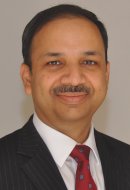
Rajesh Fogla, MD, FRCS
Rajesh Fogla, MD, FRCS
Director Cornea Clinic, Senior Consultant, Eye Department, Apollo Hospitals, Hyderabad, INDIA; Visiting Consultant, Lanka Hospitals, Colombo, Sri Lanka; General Secretary & Founding member- Cornea Society of India
Past position: Consultant, Cornea Specialist, Sankara Nethralaya, Chennai, INDIA from 1998 – 2005; Specialist in Cornea & External Diseases, Refractive Surgery
Areas of interest: Lamellar corneal surgery, refractive surgery, ocular surface reconstruction, and infections.
Actively involved in teaching & training: Instruction courses at various international and national meetings, fellowship programs, and training courses in Cornea
Numerous publications in peer reviewed journals and presentations at national and international meetings. Reviewer for international journals – Cornea, Ophthalmology, American Journal of Ophthalmology, Eye, Journal of Cataract & Refractive Surgery, JAMA, IJO.
Financial disclosure: I do not have any affiliation (financial or otherwise) with a commercial organization.
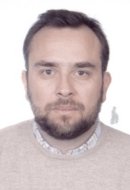
Enrique O. Graue-Hernández, MD, MSc
Enrique O. Graue-Hernández, MD, MSc
Current position: Professor of Postgraduate Course in Cornea, External and Refractive Surgery, Faculty of Medicine, National Autonomous University of Mexico Diseases. Director of Cornea Service and Refractive Surgery, Institute of Ophthalmology Foundation Conde de Valenciana.
Education: Medical Doctor, Faculty of Medicine, UNAM. Residency in Ophthalmology, Institute of Ophthalmology Conde de Valenciana, UNAM Foundation. Subspecialty Anterior Segment Surgery, Institute of Ophthalmology Conde De Valencia, UNAM Foundation. Postdoctoral Fellowship in Cornea and External Diseases, University of California, Davis. Fellowship in Cornea, Royal Victorian Eye and Ear Hospital, Melbourne, Australia. ¸
Publications: 36 published articles. 18 in international journals. 6 chapters of books specialty and subspecialty 3 books. 3 international circulation.
Societies: American Society of Ophthalmology, Mexican Center of Cornea, Cornea Society, American Academy of Ophthalmology, American Society of Cataract and Refractive Surgery, International Society of American Refractive Surgery, European Society of Cataract and Refractive Surgeons, Association for Research in Vision and Ophthalmology , Pan American Association of Ophthalmology.
Areas of interest: Refractive Surgery with Femtosecond, Cornea Transplant, infections and inflammation of the ocular surface and preventing blindness
Glaucoma
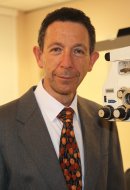
Ivan Goldberg, AM, MB, BS (Syd), FRANZCO, FRACS
Ivan Goldberg, AM, MB, BS (Syd), FRANZCO, FRACS
Dr. Goldberg is head of the Glaucoma Unit, Sydney Eye Hospital, Clinical associate professor, University of Sydney and director of Eye Associates.
He is past president of the Asia Pacific Glaucoma Society, of Glaucoma Australia, of the World Glaucoma Association, the Australian and New Zealand Glaucoma Interest Group, and of the Royal Australian and New Zealand College of Ophthalmologists. Remaining active in all these organizations and as vice president of Glaucoma Australia, Dr. Goldberg chaired both first and second editions of the Asia Pacific Glaucoma Guidelines.
Dr. Goldberg’s efforts have been recognized by the Order of Australia Award in 2011, as International Scholar of the American Glaucoma Society and the Glaucoma Foundation of New York’s Robert Ritch Award for Excellence and Innovation in Glaucoma both in 2013, the International Award of the University of Sao Paulo in 2011, the Bartisch Medal of the University of Dresden in 2014 and honorary memberships of both the Philippine and South African Glaucoma Societies.
Dr. Goldberg trained with Fred Hollows, University of New South Wales and then Bernard Becker and Michael Kass, St Louis, Missouri. He works, teaches and researches clinically and mentors younger colleagues. His interests include on patient-centred care, adherence and enhanced drug delivery and have led to over 160 peer-reviewed publications, over 30 books or chapters in books, over 20 editorials and a book on glaucoma for patients Glaucoma: How to Save Your Sight.
Financial disclosure: I have/had an affiliation (financial or otherwise) with a commercial organization.
- Alcon
- Allergan
- Forsight
- National Health & Medical Research Council
- Pfizer
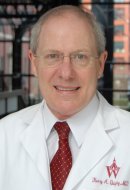
Harry A. Quigley, MD
Harry A. Quigley, MD
Dr. Quigley was born in St. Louis and is a graduate of Harvard College and Johns Hopkins Medical School (Alpha Omega Alpha). After ophthalmic residency at the Wilmer Institute, he did a fellowship with Douglas Anderson at the Bascom Palmer Eye Institute, Miami. He became the A. Edward Maumenee Professor of Ophthalmology in 1994, directing both the Glaucoma Center of Excellence and the Dana Center for Preventive Ophthalmology at Wilmer. He was a founding member of the American Glaucoma Society, serving for 8 years as its secretary. He was elected to 5 year terms as chief executive officer of the Association for Research in Vision and Ophthalmology (ARVO) and Editor-in-Chief of Investigative Ophthalmology and Visual Science.
He has published over 370 peer-reviewed articles, and his reports are the most cited in the ophthalmic literature over the last 30 years (Archives of Ophthalmology, 2007; H factor 100, 42,000 citations). He has been honored with the Friedenwald Award by ARVO, the Doyne Medal by the Oxford Ophthalmological Congress, the Leslie Dana Medal by the St. Louis Society for the Blind, and by research awards from Research to Prevent Blindness, the Alcon Research Award (twice), the European Society of Ophthalmology (Prix Jules Francois), the Chicago Ophthalmological Society (best teacher), Ophthalmological Society of Scotland (Mackenzie Medal), Australian Society of Ophthalmology (Gregg Medal), Irish Ophthalmological Society (Mooney Medal), and the New York Academy of Sciences (Lewis Rudin Prize). He is a Gold Fellow of ARVO, received the Secretariat Award of the American Academy of Ophthalmology. He has given 35 named lectures, including the 66th Edward Jackson Lecture (AAO).
Dr. Quigley has trained 55 glaucoma clinician-scientists who practise in the U.S. and worldwide. His research has improved the early diagnosis of glaucoma and has developed instruments and techniques to identify glaucoma damage better. His investigations demonstrated the degree of glaucoma damage that precedes present detection methods. He was the first to report on long-term success with laser iridotomy. His suturing technique for trabeculectomy has been widely adopted.
He has participated in pioneering studies of the epidemiology, morbidity and progression rate of glaucoma and other eye disease in American, African, Asian, and Hispanic populations, serving as a consultant to the World Health Organization. He conceptualized new roles for iris and choroidal volume change as risk factors in angle closure glaucoma. In the laboratory, he has demonstrated successful gene therapy to protect retinal ganglion cells from experimental glaucoma, and developed glaucoma models in monkeys, rats and mice.
Dr. Quigley is an active advocate of natural gardening techniques in ecorestoration projects in Baltimore, developing Poplar Hill Park (see www.waytogarden.net). His son, David, is on the U Calif San Francisco faculty in Oncology and Epidemiology as a bioinformatics specialist in cancer research. His daughter, Erica, is a landscape architect, designing outdoor play spaces. He loves being asked about his two grand-daughters.
Financial disclosure: I have/had an affiliation (financial or otherwise) with a commercial organization.
- Annexon
- Graybug
- Genentech
- Novartis
- Sensimed
International Ophthalmology and Public Health
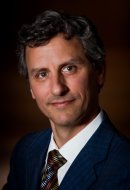
David S. Friedman, MD, MPH, PhD
David S. Friedman, MD, MPH, PhD
Dr. Friedman is the Alfred Sommer Professor of Ophthalmology at the Wilmer Eye Institute of Johns Hopkins University School of Medicine and Professor in the Departments of Epidemiology and International Health at Johns Hopkins Bloomberg School of Public Health. Dr. Friedman is also the director of the Dana Center for Preventive Ophthalmology at Johns Hopkins. He graduated summa cum laude from Yale College, received his medical degree from Harvard Medical School, and obtained a PhD in epidemiology from Johns Hopkins. He completed his residency at Wills Eye Hospital and served as a glaucoma fellow with Dr. Harry Quigley.
Dr. Friedman is the recipient of clinician scientist awards from the NIH, Research to Prevent Blindness and the American Geriatric Society. Since joining the Wilmer faculty he has had continuous funding from the NIH, as well as numerous other funding organizations. He co-edited a definitive book on angle-closure glaucoma and has published nearly 300 peer-reviewed articles. He has served on the editorial boards of Ophthalmology, the Cochrane Collaboration, and the Journal of Glaucoma, and plays a leadership role in the World Glaucoma Association and the American Glaucoma Society. He also is the senior ophthalmologist for Helen Keller International, a large non-profit organization dedicated to alleviating blindness worldwide.
Dr. Friedman is world renown for his contributions to the study of the mechanisms, epidemiology and prevention of angle-closure glaucoma. His current research in angle-closure glaucoma includes his role developing and implementing clinical trials in Singapore and Guangzhou, China, where the disease is common. In addition to his research, Dr. Friedman is listed on Best Doctors as a leading glaucoma specialist. Dr. Friedman also trains glaucoma fellows as well as residents. His dedication to teaching extends to the medical school where he is a co-director of the Scholarly Concentration program.
Financial disclosure: I have/had an affiliation (financial or otherwise) with a commercial organization.
- Alcon
- Forsight
- Nidek
- Quark Pharmaceuticals
- Valeant
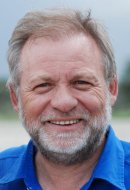
Bill Nortje, MD
Bill Nortje, MD
Dr. Nortje has been in ophthalmology private practice since 1988 in Durban, South Africa.
He is primarily a general ophthalmologist with an emphasis on cataract surgery, refractive surgery including lasik, glaucoma, medical diabetic eye disease and macular degeneration.
He is an active member of several ophthalmic societies in South Africa and served on the board of many of them, including the Ophthalmological Society of South Africa, who awarded him with the DG Wood medal. He ran the local society branch for 10 years and has been the convener of four major ophthalmology congresses and been on the organizing committee of several others.
Outside of work his family is his main interest and planning and going on holidays with them fills his time. Wildlife, the bush and all things African fills his free time.
Financial disclosure: I do not have any affiliation (financial or otherwise) with a commercial organization.
Neuro-ophthalmology
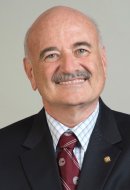
Alfredo A. Sadun, MD, PhD
Alfredo A. Sadun, MD, PhD
Flora Thornton Professor of Vision
Dr. Sadun holds the Flora L. Thornton Endowed Chair at Doheny Eye Centers-UCLA and is vice-chair of ophthalmology at UCLA. Dr. Sadun graduated from MIT (1972). He received his PhD and MD at the Albert Einstein College of Medicine in 1976 and 1978. He completed a residency in ophthalmology at Harvard Medical School and after a fellowship in Neuro-Ophthalmology joined the full-time faculty at Harvard, Department of Ophthalmology in 1983. He was recruited to USC/Doheny where he stayed for 30 years. He helped lead Doheny in its transition to UCLA in 2014.
Dr. Sadun actively pursues and has received the greatest distinction in all three of the classical academic missions. His research in vision was honored by the lifetime achievement award given by Lighthouse International, the 1999 Pisart Award, His contributions to residency teaching in ophthalmology were honored by the AAO and AUPO highest award for education, the 2002 Straatsma Prize. In 2012, Dr. Sadun received the Hoyt Award, the highest prize offered in clinical neuro-ophthalmology, given jointly by the AAO and NANOS. He also received the prestigious Heed Award for Academic Excellence at the AAO meetings in 2014.
Dr. Sadun has been recognized as an international authority in neuro-ophthalmology and especially diseases of the optic nerve. He has published over 300 peer-reviewed articles, 70 book chapters and co-authored or edited 4 books. He is an editorial board member of IOVS and peer-reviews regularly for about 15 journals. He received funding from the NIH for over 25 years and holds 5 patents. His scholarly achievements have been recognized by several organizations including the Research for the Prevention of Blindness (RPB) James Adams Scholar Award, RPB Senior Investigator Award, AAO Honor Award, Senior Honor Award, Secretariat Award and ARVO Fellow Award.
Dr. Sadun served on and chaired the national Residency Review Committee (RRC) of the ACGME for ophthalmology. Dr. Sadun was an organizer for ophthalmology residency programs directors and became the first president of the AUPO Program Directors’ Council and was the inaugural recipient of the Straatsma Award. Dr. Sadun has a clinical practice in neuro-ophthalmology with a special emphasis on diseases of the optic nerve.
Dr. Sadun maintains an active laboratory at the Doheny Vision Research Center. This research has centered on the clinical, psychophysical and laboratory studies of diseases of the optic nerve. In the 1980’s Dr. Sadun was one of the first to apply a new tract-tracing technique in order to establish nine anatomical pathways between the eye and various parts of the brain. He was the first to describe a human retinal projection to the hypothalamus that subserves the visual entrainment of the circadian rhythm. Dr. Sadun was the first to identify an optic neuropathy associated with Alzheimer’s disease. In 1993, he was selected and sponsored by the United Nations to lead an investigative team to determine the cause of an epidemic of optic neuropathy in Cuba. This work led to further investigations into the role of mitochondria in optic neuropathies due to injury from nutritional, toxic and genetic causes. Dr. Sadun has led over twelve yearly international field investigations for studying the world’s largest pedigree of LHON in Brazil. In these and other studies, he has investigated the role of mitochondria in neuronal metabolism, apoptosis and neuroprotection.
Financial disclosure: I have/had an affiliation (financial or otherwise) with a commercial organization.
- Stealth Paptides
- Gensight Biologics
Ocular Regeneration
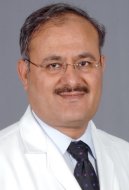
Virender S. Sangwan, MS
Virender S. Sangwan, MS
Dr. Paul Dubord Chair in Cornea
Director, Center for Ocular Regeneration (CORE)
Director, Srujana-Center for Innovation
L V Prasad Eye Institute
Dr. Sangwan is a renowned ophthalmic surgeon of international repute with over 22 years of rich experience. He has been involved with cutting-edge research in eye care and his major contribution is in the field of translational research in Ophthalmology involving limbal stem cells. His main focus of clinical activity is on the diseases of cornea and ocular inflammation, especially conditions which are difficult to treat. He has pioneered the SLET (Simple Limbal Epithelial Transplant) procedure which is now practised as a standard procedure throughout the world. He has been working closely with scientists for the last fifteen years for stem cell – related work and has done extensive work in the area of treatment for Limbal Stem Cell Deficieny. He has conducted several clinical trials for contact lenses, sustained-drug delivery devices, intraocular lenses and drugs to treat uveitis and corneal diseases.
He is a well-known speaker at various national and international ophthalmic forums and till date has over 200 publications to his credit. In 2011, he was featured among the top 25 scientists by India Today, a leading journal of India. He has received more than 20 recognition awards for personal and joint contribution in the field of research in ophthalmology from national as well international agencies including the prestigious Dr. Shanti Swarup Bhatnagar Award for Medical Sciences and the National Technology Award of DBT, Govt. of India.
Financial disclosure: I do not have any affiliation (financial or otherwise) with a commercial organization.
Oculoplastics
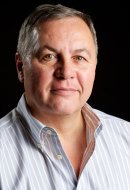
Claudio DeLorenzi, MD
Claudio DeLorenzi, MD
Dr. DeLorenzi is a fully qualified plastic surgeon in aesthetic private practice in Kitchener-Waterloo. He has been very involved with various medical research and development projects over the years, including facial fillers and non surgical technologies. He is past president of the Canadian Society of Aesthetic Plastic Surgery as well as past president of the Canadian Laser Aesthetic Surgery Society. He has been actively involved in various plastic surgery societies both in Canada and the USA, and has been active on various boards, committees, and as a travelling professor with ASAPS. He is currently on the Editorial Board of the Aesthetic Journal.
Financial disclosure: I have/had an affiliation (financial or otherwise) with a commercial organization.
- Allergan Canada
- Merz Canada
- Kythera Biopharmaceuticals Inc.
- Suneva Medical Inc.
- Valeant Pharmaceuticals
Pathology
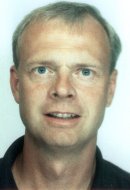
Steffen Heegaard, MD
Steffen Heegaard, MD
Professor of ophthalmology
Dr. Heegaard is 54 years old and professor in ophthalmic pathology and ophthalmic oncology at the University of Copenhagen, Denmark.
He has written more than 175 articles mostly on ophthalmic pathology and oncology such as lacrimal gland neoplasms and lymphoma in the ocular adnexal region.
His clinical work is focused on ocular surface diseases, oculoplastics and ocular oncology.
He is the former chairman of the Eye Pathology Institute in Copenhagen and has been the honorary scientific secretary of the European Ophthalmic Pathology Society.
Dr. Heegaard is now the president of the Danish Ophthalmological Society, honorary scientific secretary of the European Ocular Oncology Group and board member and treasurer of the European Association for Vision and Eye Research (EVER).
Financial disclosure: I have/had an affiliation (financial or otherwise) with a commercial organization.
- MC2 Biotek
- Santen Pharmaceutical
- Thea Pharmaceuticals
Pediatrics

Sean P. Donahue, MD, PhD
Sean P. Donahue, MD, PhD
Sam and Darthea Coleman Chair
Vice Chair of Clinical Affairs, Department of Ophthalmology
Professor of Pediatrics, Ophthalmology, and Neurology
Chief of Pediatric Ophthalmology
Vanderbilt University Medical Center
Dr. Donahue graduated from the University of Dayton with majors in Mathematics and Biology. After receiving his MD and PhD (anatomy and cell biology) at Emory University, he underwent residency training in ophthalmology at the Eye and Ear Institute of Pittsburgh, and fellowship training in neuro-ophthalmology and pediatric ophthalmology at the University of Iowa. He currently serves as the vice-chair for clinical affairs in the Department of Ophthalmology and chief of pediatric ophthalmology at the Monroe Carell Junior Children’s Hospital at Vanderbilt.
Dr. Donahue’s clinical interests are in management of complicated congenital and acquired strabismus. His research involves the validation of new technologies for screening preschool children. He is lead author on the new AAP Policy Statement on preschool vision screening. Dr. Donahue has published over 150 peer-reviewed manuscripts on a variety of diverse topics. He currently serves as an associate editor for the Journal of AAPOS, as the chair of the multi-centered randomized intermittent exotropia surgical trial, and as the program chair for AAPOS. Dr. Donahue has given invited lectures on six populated continents, and he has twice won the surgical teaching award presented by the residents.
Financial disclosure: I have/had an affiliation (financial or otherwise) with a commercial organization.
- Welch Allyn Inc.
- Gobiquity Inc.
Retina
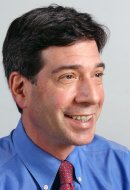
Jay S. Duker, MD
Jay S. Duker, MD
Dr. Duker is professor and chairman, Department of Ophthalmology at Tufts Medical Center and Tufts University School of Medicine and the director of the New England Eye Center in Boston, Massachusetts. The New England Eye Center is one of the largest and busiest academic practices in the country. Dr. Duker received his medical degree magna cum laude from Jefferson Medical College in Philadelphia, PA. He completed an internal medicine internship at the Beth Israel Hospital in Boston, MA. Dr. Duker then completed an ophthalmology residency, serving as chief resident, followed by a retina and vitreous surgery fellowship, at the Wills Eye Hospital in Philadelphia.
Dr. Duker’s major research interests include imaging of the posterior segment, retinal vascular disease, and drug delivery to the posterior segment. He has pursued those interests as a co-investigator or principal investigator of numerous studies funded by the National Institutes of Health/National Eye Institute, Massachusetts Institute of Technology, and industry, including studies of optical coherence tomography and several phase III trials. Specializing in medical and surgical diseases of the posterior segment, his surgical expertise includes macular diseases, retinal detachment, proliferative vitreoretinopathy, diabetic retinopathy and intraocular tumours.
He has published over 185 journal articles and has authored five text books and dozens of book chapters. In addition, Dr. Duker lectures extensively both nationally and internationally. He is the editor of the International Journal of Retina and Vitreous, the associate editor of OSLI Retina, and has served on the editorial boards of Investigative Ophthalmology and Visual Science, Review of Ophthalmology, Evidence-Based Eye Care, and Retina Today. He has been a reviewer for many journals including Ophthalmology, American Journal of Ophthalmology, Archives of Ophthalmology, Ophthalmic Surgery and Lasers, Retina, and The New England Journal of Medicine, among others.
Dr. Duker is the recipient of Honor Award and Senior Honor Award from the American Academy of Ophthalmology and the American Society of Retina Specialists. In addition, he is the founder of three companies including Hemera Biosciences, a biotech start-up whose focus is a gene therapy based treatment for age-related macular degeneration.
Financial disclosure: I have/had an affiliation (financial or otherwise) with a commercial organization.
- Carl Zeiss Meditech
- Optovue
- Allergan
- Aura Biosciences
- Bausch and Lomb
- CoDa Therapeutics
- Lumenis
- Omeros
- Santen Pharmaceutical
- Thrombogenics
- Hemera Biosciences
- Ophthotech
- Eleven Biotherapeutics
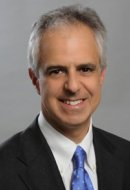
Carl D. Regillo, MD, FACS
Carl D. Regillo, MD, FACS
Dr. Regillo is professor of ophthalmology at Thomas Jefferson University, chief of the Retina Service of Wills Eye Hospital and founder of the Wills Eye Clinical Retina Research Unit in Philadelphia.
He received his medical degree from Harvard Medical School and performed his ophthalmology residency and vitreoretinal fellowship at Wills Eye Hospital. He has authored over 100 publications along with over 20 book chapters and eight major books. He has been an investigator on numerous major clinical trials developing new medical and surgical treatments for retinal disorders such as macular degeneration and diabetic retinopathy. He lectures worldwide and serves on the scientific editorial board for several top ophthalmology peer-reviewed journals.
As a recognized leader in the field, he is a recipient of the many local, national, and international awards including American Academy of Ophthalmology Achievement, Senior Achievement, and Secretariat Awards and the American Society of Retinal Specialists Honor and Senior Honor Awards.
Financial disclosure: I have/had an affiliation (financial or otherwise) with a commercial organization.
- Allergan
- Genentech
- Ophthotech
- Regeneron Pharmaceuticals
Uveitis
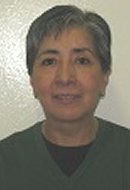
Lourdes Arellanes, MD
Lourdes Arellanes, MD
Head, Inflammatory Eye Disease Clinic. Asociación Para Evitar la Ceguera en México, I.A.P.
Director, Inflammatory Eye Disease Fellowship. Asociación Para Evitar la Ceguera en México, I.A.P. Universidad Nacional Autónoma de México
Associated Ophthalmology Professor, Post-graduate Department, School of Medicine, Universidad Nacional Autónoma de México
Dr. Arellanes earned her medical degree from the National University of México (U.N.A.M.), she completed her ophthalmology training at Dr. Luis Sánchez Bulnes Hospital, Asociación Para Evitar la Ceguera en México, UNAM, followed by a cataract surgery fellowship in the same institution, and then by an external disease and uveitis research fellowship at the Francis I. Proctor Foundation, UCSF.
Dr. Arellanes established the Inflammatory Eye Disease Clinic at the Dr. Luis Sánchez Bulnes Hospital, she is cofounder and past president of the Mexican Center of Inflammatory Eye Diseases.
Dr. Arellanes was president of the Mexican Society of Ophthalmology and of the Pan American Association of Inflammatory Eye Diseases. She currently chairs the Mexican Board of Ophthalmology.
Dr. Arellanes is a member of the National Academy of Medicine and has also received the American Academy of Ophthalmology Achievement Award, the Von Behring Kitasato Award on Immunology Research of the National Academy of Medicine and the Biennial Award in Ophthalmology of the National University of México.
Dr. Arellanes has delivered several eponymous lectures among numerous invited lectures and courses at national and international meetings. She has authored and co-authored articles in peer reviewed journals and book chapters.
Dr. Arellanes’ clinical and research interests involve diagnosis and treatment of patients with ocular inflammatory and infectious diseases.
Financial disclosure: I have/had an affiliation (financial or otherwise) with a commercial organization.
- AbbVie
- Xoma
Vision Rehabilitation
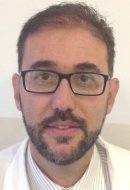
Filippo M. Amore, MD, PhD
Filippo M. Amore, MD, PhD
Dr. Amore is an ophthalmologist and Medical Activities Coordinator of the Italian National Center of Services and Research for the Prevention of Blindness and Rehabilitation of the Visually Impaired founded by International Agency for Prevention of Blindness – IAPB Italia Onlus Roma. His primary research interested are multidisciplinary approach on vision rehabilitation, new technologies application on low vision and outcomes of vision rehabilitation.
He has been involved on the organization and coordination of the process of WHO International Consensus Conference on Standards for visual Rehabilitation, as since from May 2013, the World Health Organization has designated the National Centre as a WHO Collaborating Centre for Visual Rehabilitation.
Financial disclosure: I do not have any affiliation (financial or otherwise) with a commercial organization.